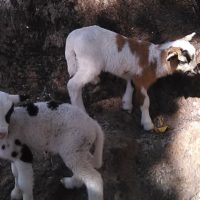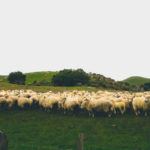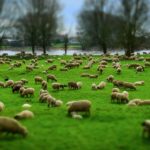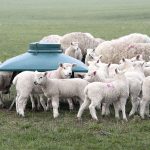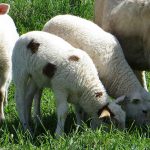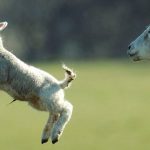A feed additive may be a compound added to the ration for a purpose other than to produce nutrients. Varied feed additives will be utilised to boost the health and performance of sheep and lambs.
Antibiotics
As well as sub-therapeutic antibiotics (40 g/ton in feed) in lamb rations will help to stop enterotoxemia and respiratory disease in feedlot lambs. Antibiotics will be fed to ewes during the last six weeks of gestation to help prevent infectious abortion. Antibiotics are advocated throughout an “abortion storm” to forestall further losses.
Ionophores
Lasalocid (Bovatec®) and Monensin (Rumensin®) are ionophores that may be added to mineral mixes or complete rations. Ionophores improve feed utilization and gain in cattle by altering rumen fermentation. They are conjointly coccidiostats. They kill coccidia, primarily during the sporozoite stage. Lasalocid (Bovatec®) is labeled as a coccidiostat for confined sheep.
Rumensin® is approved to be used in goats and cattle. Its use in sheep should be approved by a veterinarian. Decoquinate (Deccox®) is additionally a coccidiostat. Deccox stops coccidia from growing. In distinction with Bovatec® and Rumensin®, Deccox may be a quinolone. It is safer to use than ionophores, however is more expensive. Bovatec® and Rumensin® will be toxic to equines.
Feeding Bovatec® or Deccox® to ewes prior to lambing might facilitate to reduce the extent of coccidia in the lambing surroundings. Rumensin® fed to ewes during late gestation could help to prevent abortions caused by toxoplasmosis. Alternative potential benefits to ionophores embrace reduced incidences of acidosis and feed heap bloat. Ionophores have additionally been shown to cut back livestock methane production (CH4) and nitrogen leaching.
Probiotics
Probiotics are simply the other of antibiotics. They are living organisms of beneficial bacteria. Probiotics could improve animal performance by keeping livestock healthy and improving their digestion. Several industrial feeds contain probiotics. Milk replacers typically contain probiotics.
Yeast is a probiotic and has been incorporated into livestock rations. Therefore way, there’s little printed knowledge to support an improvement in animal performance as a results of feeding probiotics or similar additives. More analysis is required before their advantages and economics can be validated.
Ammonium chloride is often added to lamb rations to stop urinary calculi (kidney stones). Ammonium chloride will facilitate to acidify the urine. It should be added to the ration at a rate of 0.five to 1.five percent. It can additionally be mixed as a drench and used to treat lambs with early signs of urinary calculi.


